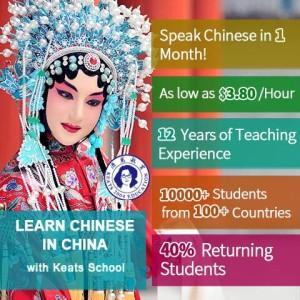In a large country such as China, people are always moving around for work. In a number of cases, sometimes their families go with them, meaning that many children change schools or educational facilities—and lose touch with classmates and friends. Still now and then, it’s possible to meet up with some old school friends as you make way in your career—and won’t it be nice if you can talk with them about your past times together?
In this Podcast, you will learn:
(i) How to discuss which educational facilities you attended
(ii) To explain where you studied and recall some people from the past
Dialogue:
Two old classmates meet up after some time:
(在咖啡厅)
(zài kā fēi tīng)
(at the café)
A:大学你是在哪个城市上的?
Dà xué nǐ shì zài nǎ gè chéng shì shàng de?
In which city did you go to university?
B:我是在北京上的本科,毕业后我去英国读研。本来想在那儿再读个博士,但后来我决定还是回国好。
Wǒ shì zài Běi Jīng shàng de běn kē, bì yè hòu wǒ qù yīng guó dú yán. Běn lái xiǎng zài nà er zài dú gè bó shì, dàn hòu lái wǒ jué dìng hái shì huí guó hǎo.
I went to Beijing for my undergraduate studies. After graduation, I went to UK for my Masters. At first, I was going to get my PhD there, too. But later, I decided that it was better to come back to China.
C:你俩原来不是同学么?
Nǐ liǎ yuán lái bù shì tóng xué me?
Weren’t you two classmates before?
A:哦,我俩是小学和初中同学。但上高中后就没联系了。
Òu, wǒ liǎ shì xiǎo xué hé chū zhōng tóng xué. Dàn shàng gāo zhōng hòu jiù méi lián xi le.
Oh yes, we were primary and middle school classmates. But we lost contact with each other when we were at secondary level school.
B:不过现在我们又成同事了,多有缘分啊!
Bù guò xiàn zài wǒ mén yòu chéng tóng shì le, duō yǒu yuán fèn a!
However, we are now co-workers. It must be fate.
Chinese words and phrases mentioned in this Podcast:
小学:primary school (six years in China)
初中:middle school (three years)
高中:secondary school (three years)
高考:the university entrance exam (the most important exam in China)
大学:university (four years)
研究生:a graduate student
博士:a PhD student
上大学:go to university
城市:city
本科:undergraduate
毕业:graduation
读:study
研:short for ‘研究生’, a Master’s degree student
本来:at first
决定:decide
回国:come back to the country
原来:before
联系:contact
同事:co-worker
缘分:fate
Cultural/Grammar note:
‘I am an undergraduate student’ in Chinese is:
‘我是本科生’
Wǒ shì běn kē shēng.
‘Nine-year compulsory education’ in China:
China promulgated “Compulsory Education Law of the People’s Republic of China” in 1986. Since then, all citizens must attend school for at least nine years, known as the ‘nine-year compulsory education in China’ which the government funds. Nine-year compulsory education contains primary school(‘小学’) and junior secondary school (‘初中’) (or middle school). Primary education in most schools lasts six years. Both junior high school (or middle high school) and senior secondary school (or high school) (‘高中’)last three years in China.
Mandarin Chinese learning resources we recommend:


